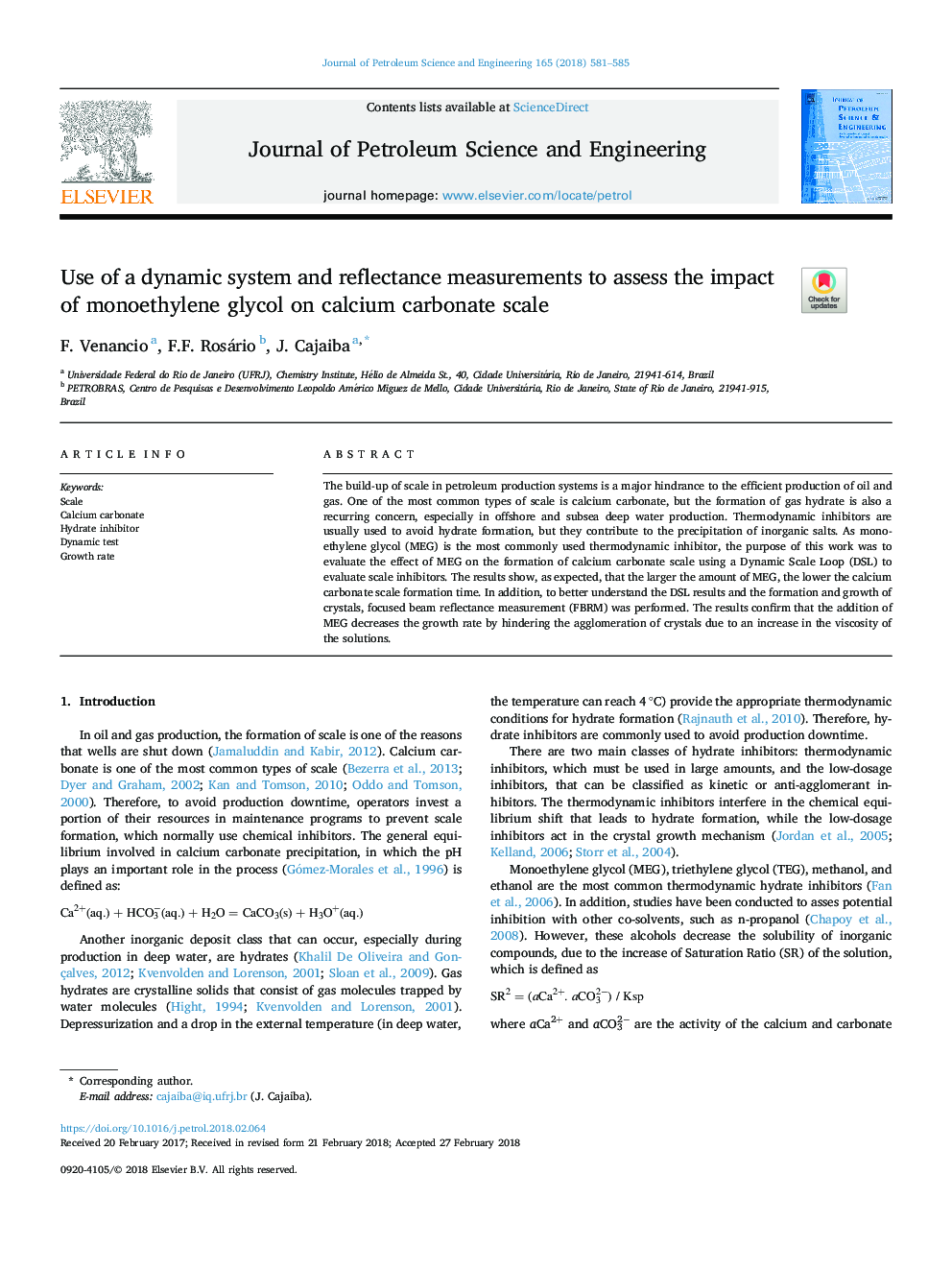| Article ID | Journal | Published Year | Pages | File Type |
|---|---|---|---|---|
| 8125107 | Journal of Petroleum Science and Engineering | 2018 | 5 Pages |
Abstract
The build-up of scale in petroleum production systems is a major hindrance to the efficient production of oil and gas. One of the most common types of scale is calcium carbonate, but the formation of gas hydrate is also a recurring concern, especially in offshore and subsea deep water production. Thermodynamic inhibitors are usually used to avoid hydrate formation, but they contribute to the precipitation of inorganic salts. As monoethylene glycol (MEG) is the most commonly used thermodynamic inhibitor, the purpose of this work was to evaluate the effect of MEG on the formation of calcium carbonate scale using a Dynamic Scale Loop (DSL) to evaluate scale inhibitors. The results show, as expected, that the larger the amount of MEG, the lower the calcium carbonate scale formation time. In addition, to better understand the DSL results and the formation and growth of crystals, focused beam reflectance measurement (FBRM) was performed. The results confirm that the addition of MEG decreases the growth rate by hindering the agglomeration of crystals due to an increase in the viscosity of the solutions.
Related Topics
Physical Sciences and Engineering
Earth and Planetary Sciences
Economic Geology
Authors
F. Venancio, F.F. Rosário, J. Cajaiba,
